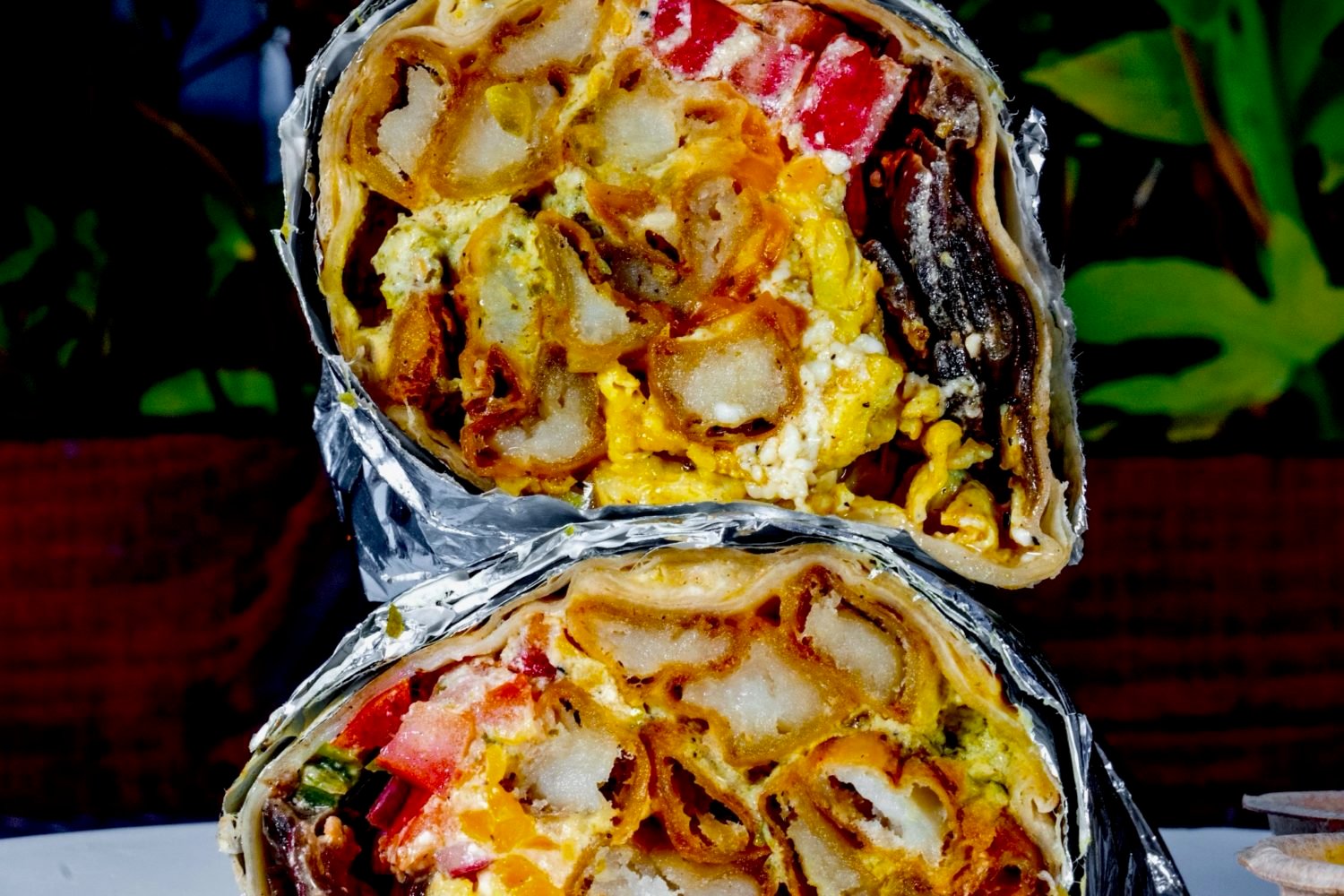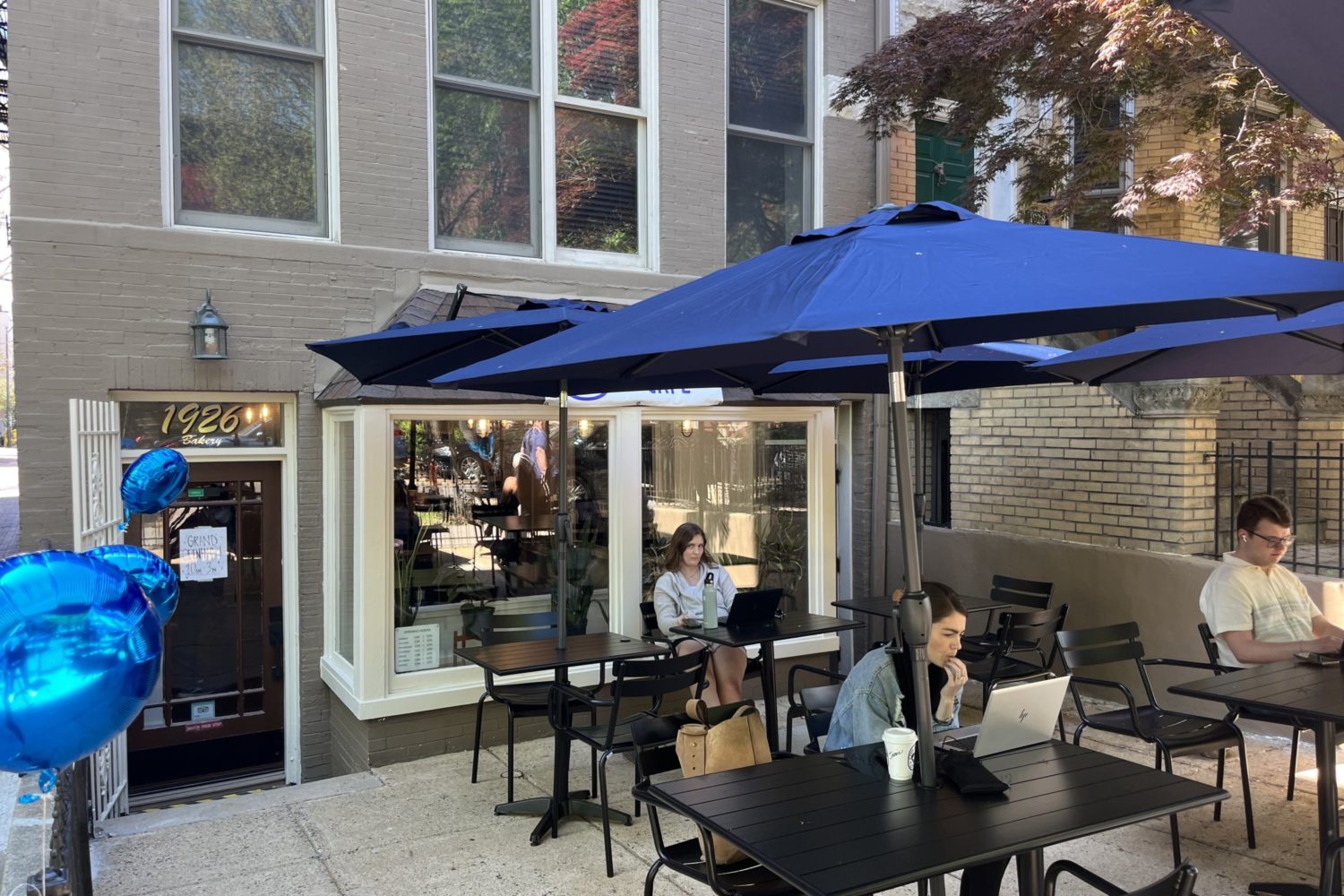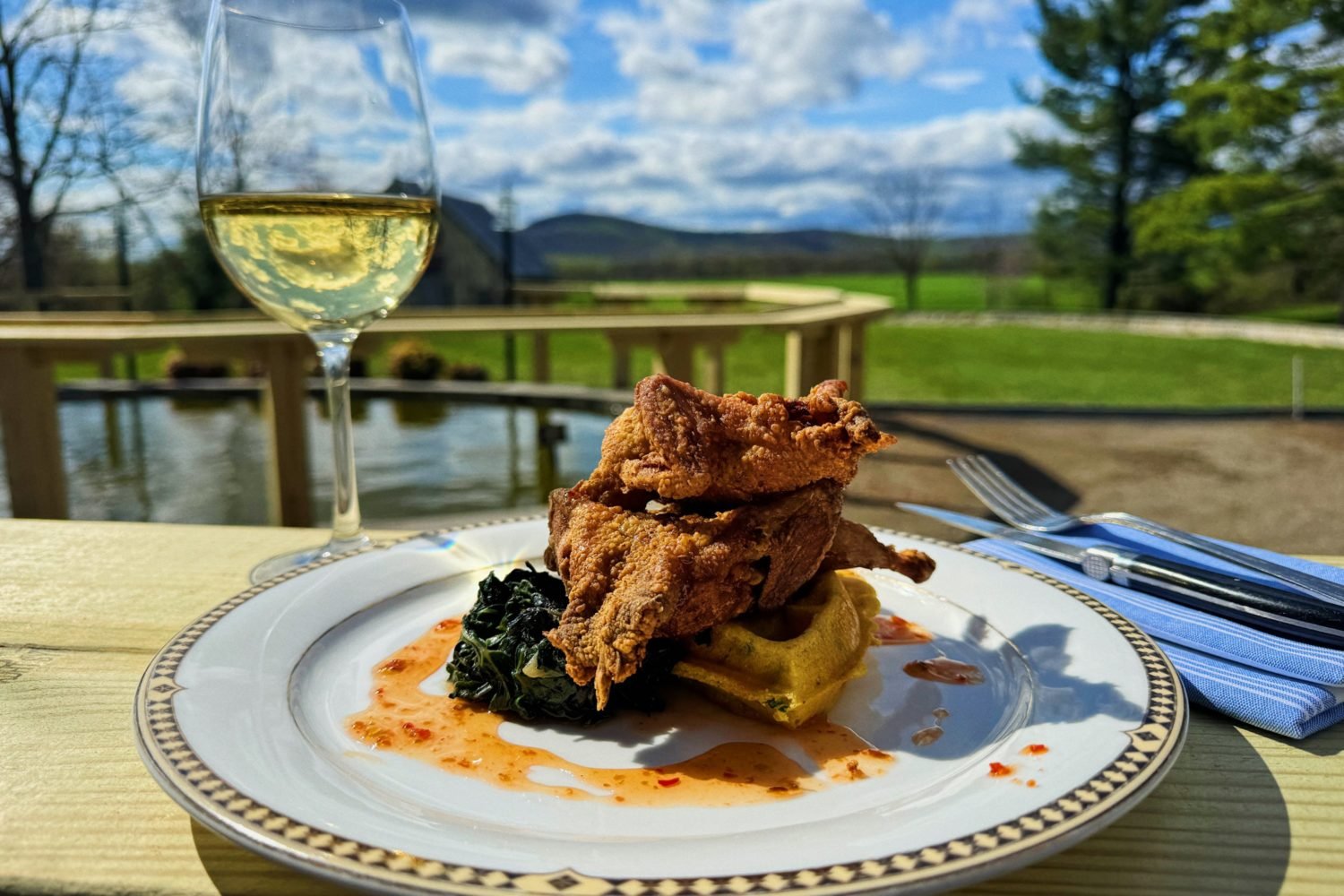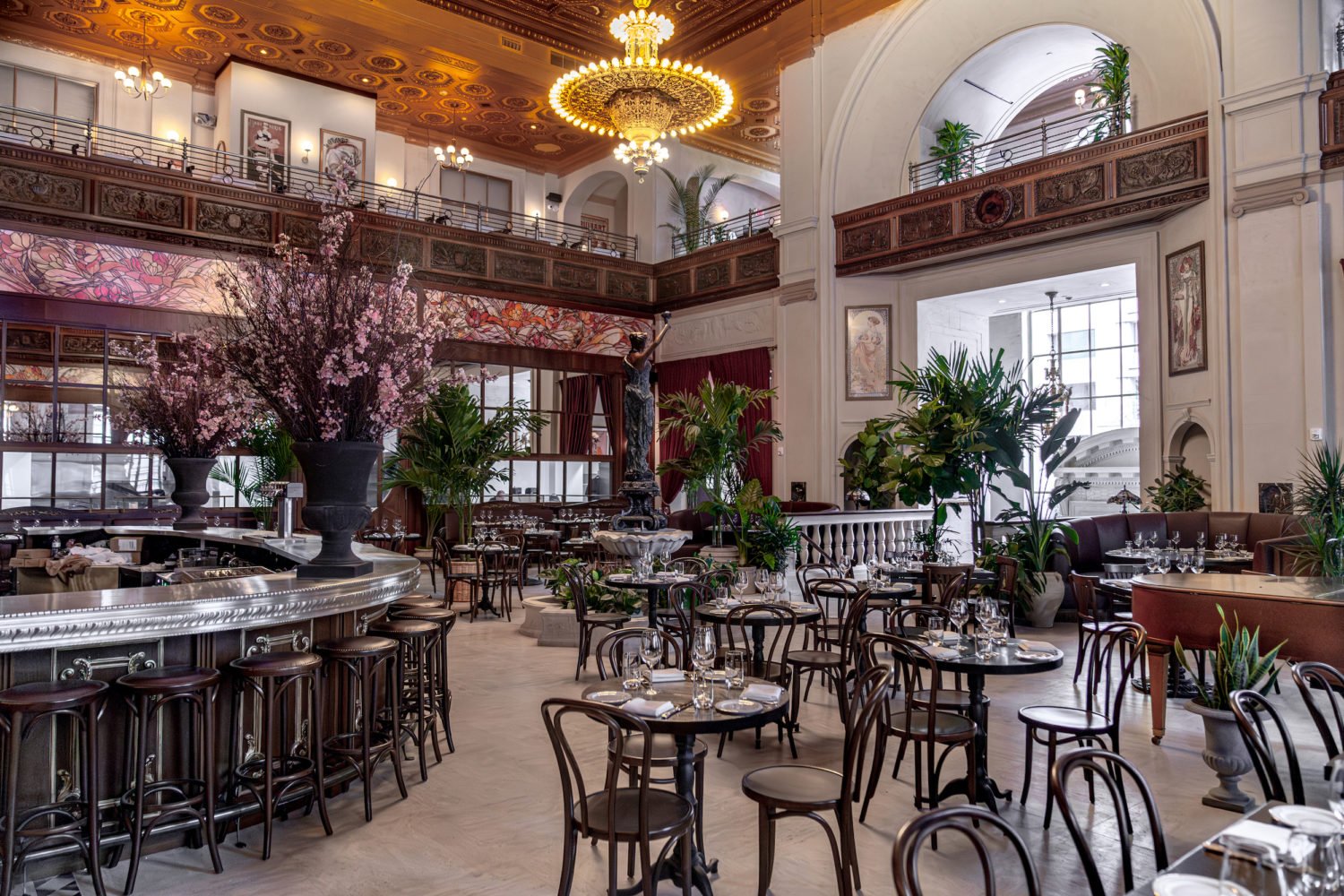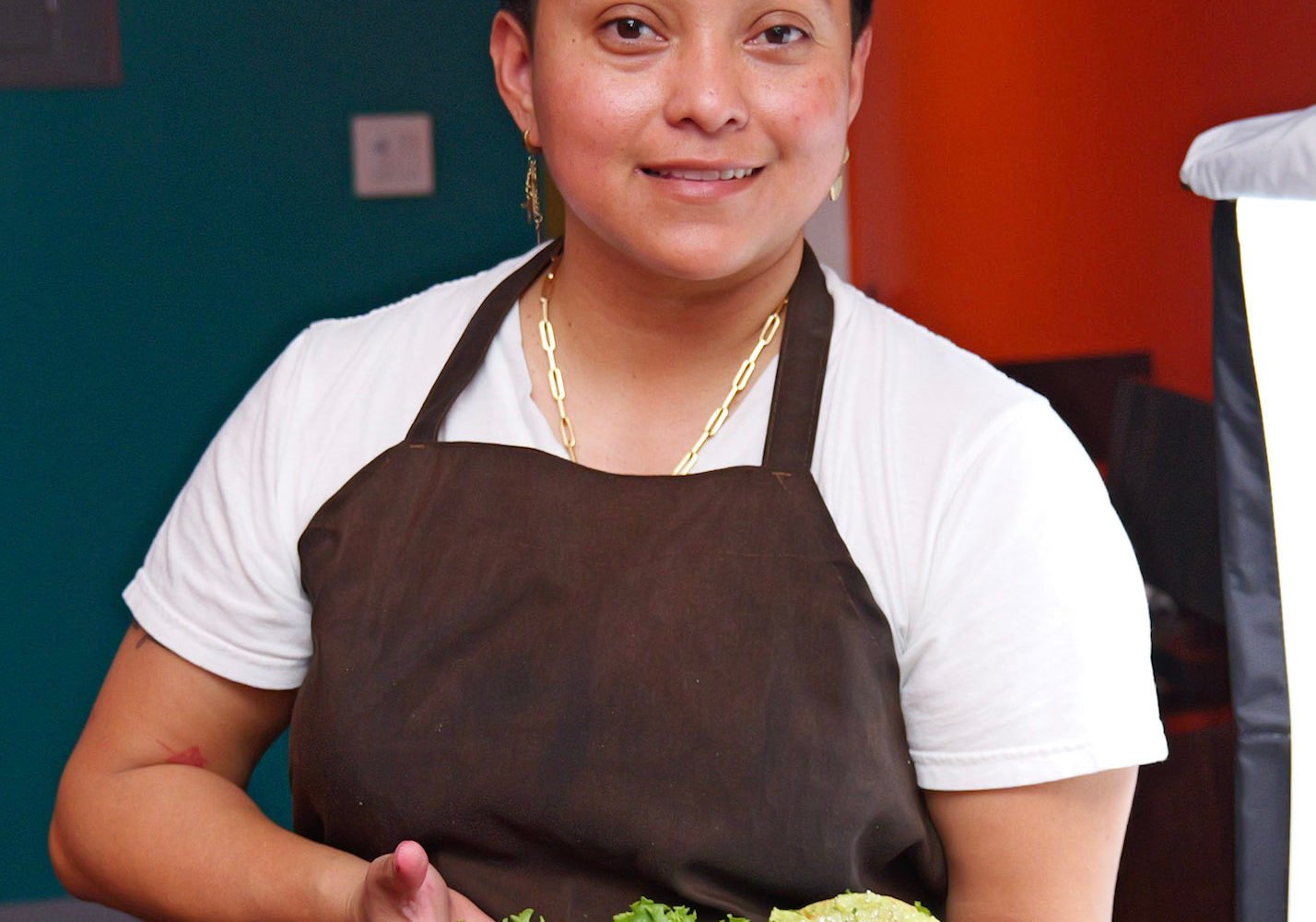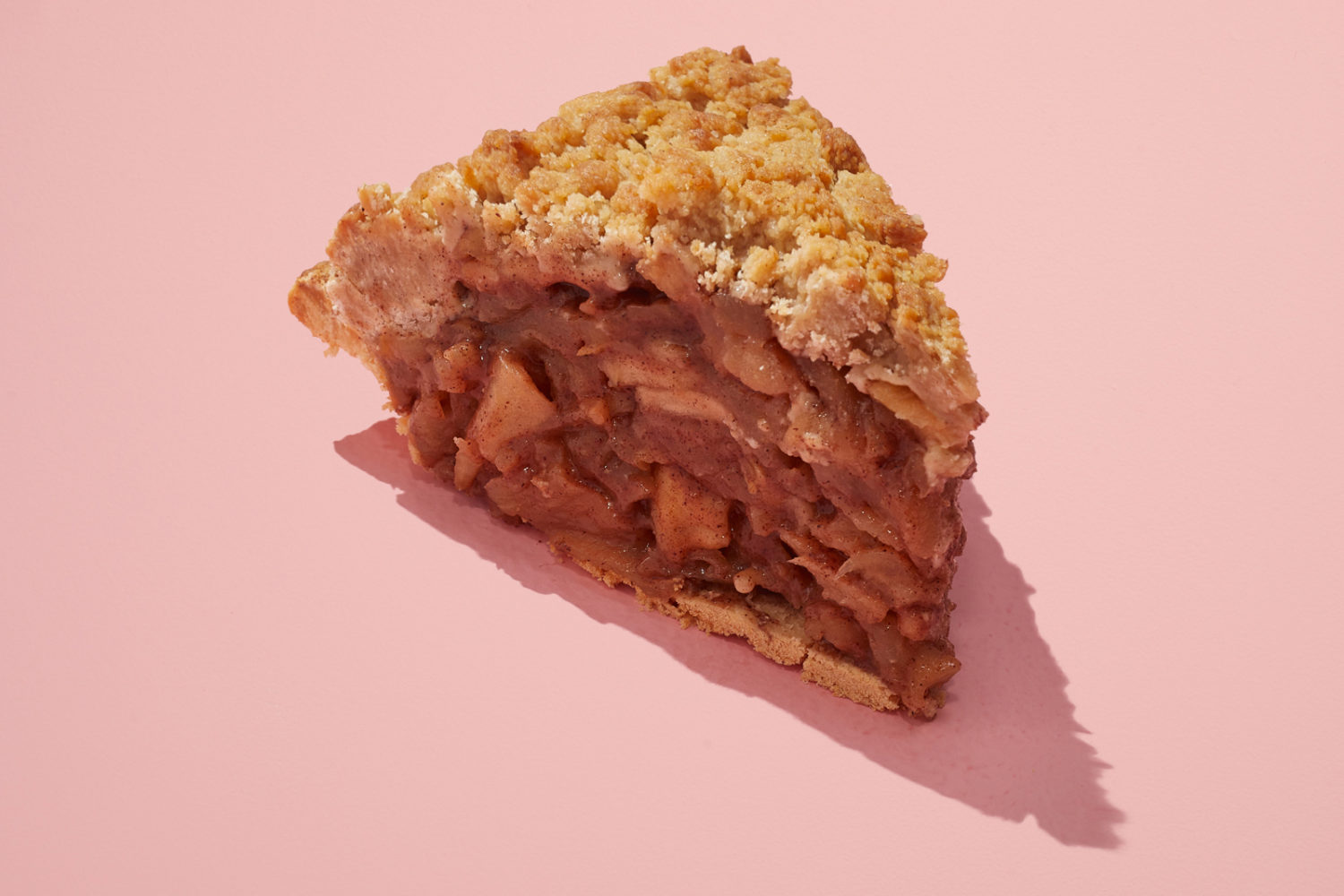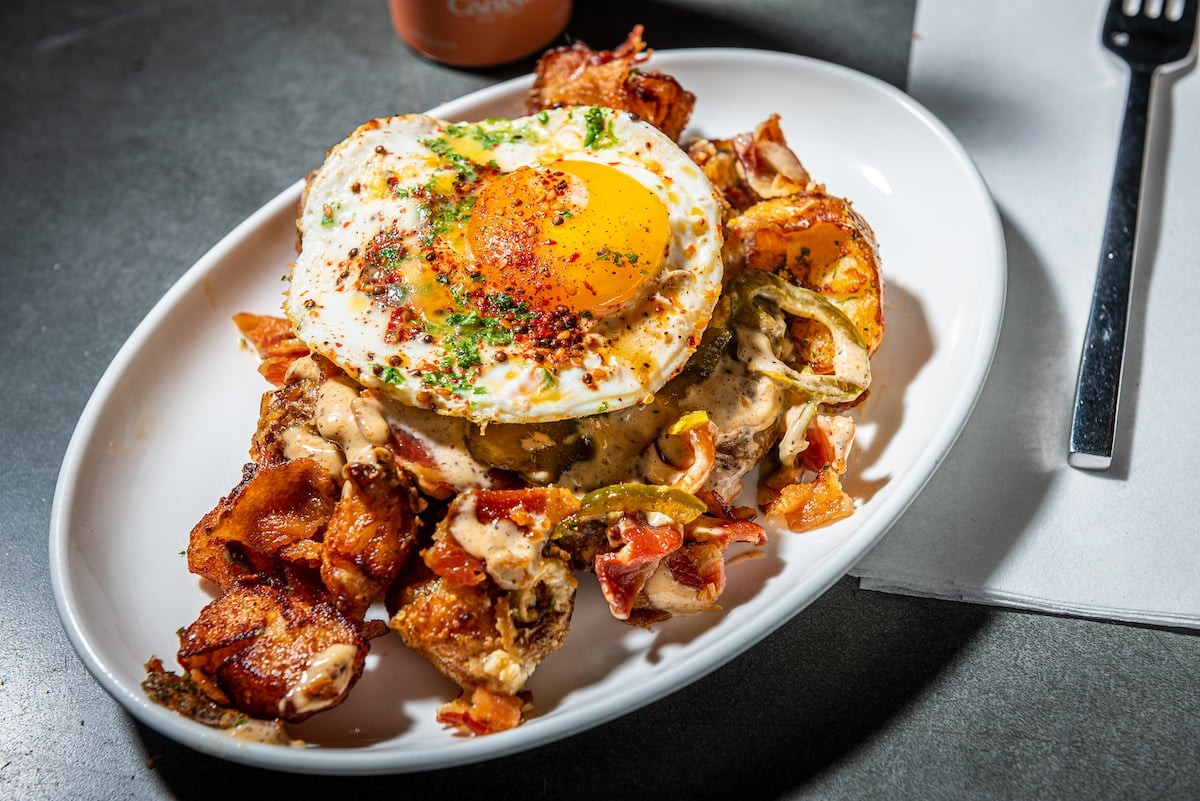Open Monday through Friday for lunch and dinner, Saturday for dinner, Sunday for brunch.
“What’s this place supposed to be anyway?” asked my friend Matt, surveying the scene at Againn, a new British-themed restaurant, as we settled into a table along the long window looking out onto 11th Street in downtown DC. To Matt’s way of thinking, there were too many fashionable customers for the place to be a legitimate pub—no matter the size of the beer list or the wooden booths or the raucous hilarity at a nearby table. Then came our menus, whose choices included, in addition to fish and chips and chicken pot pie, a corned-lamb’s-tongue salad and a butcher’s board of salt-flecked disks of meat fashioned from the innards of a pig’s head. Matt set down his menu with a long, despairing sigh.
What Againn is supposed to be, I tried to explain, is a gastropub, a term that arose two decades ago in London to distinguish a new crop of ambitious restaurants from the pubs of old. “Gastropub” stood for local farmers and shopping seasonally, signaling to the dining public that the cooking was treated with a seriousness generally reserved for drafts and ales. The term—along with the similar “gastrobistro”—struck a responsive chord with diners both in Europe and later in America as the foundations of the formal, fine-dining restaurant began to erode. It seemed to capture the spirit of a boundary-smashing age, a time when we’ve largely bidden farewell to the trappings of the high-end restaurant—white tablecloths, maître d’s, bowing waiters—but still crave some refinement and intricacy in the cooking.
A good gastropub can be a wonderful thing—but a more difficult proposition than it looks. If the roster of dishes is too fancy, the place risks looking like a pretender, using a slouchy setting as a way of dodging the expectations that come with taking yourself seriously—a fashion model donning ripped jeans. But if the cooking isn’t precise enough, if it’s too simple, then the diner is right to wonder: What makes this different from any other pub?
“So what you’re saying is that either way we’re sitting in a pretender,” Matt said, looking almost betrayed that I’d brought him along for a free meal.
I confess to initially pegging Againn as the first kind of pretender, seeing its exterior—the ground floor of a glass-encased office building—as evidence that its owners intended to trade on the trendiness of the gastropub and cared little about creating a sense of character. Can the soulfulness that the genre demands really be exported, as if a restaurant were no different from sugar or soybeans? Wouldn’t something of the traditional British pub be lost in translation?
The exterior makes you feel as if you’re walking into a bank for dinner, and the interior, for all its correct appointments, is so dominated at night by throngs of young professionals that you might think you’ve wandered into a hot new lounge. But Againn—the Gaelic word, pronounced “ah-gwen,” translates roughly as “with us”—also works hard to achieve a balance between sometimes disparate values.
The vaulted industrial ceiling and hard surfaces make for a raucous din in prime time, but the high-backed, tavern-style booths provide a measure of privacy. Tables are bare, but the bread basket is delivered along with pinch bowls of Irish butter and Maldon sea salt. The drink list includes a lengthy selection of cask ales and excellent drafts, a roster of Scotches the size of a small-town phone book, and nearly a dozen cocktails, including a concoction made with hot beef broth, horseradish, and vodka that sounds as though it were dreamed up by a couple of drunks but goes down as smoothly as anything produced by a “mixologist.” An order of tea yields a patterned pot that conjures an afternoon in the cafe at Harrods. Among the desserts is a standout rendition of the Scottish treat banoffee pie, as sumptuous and refined as the finest chocolate mousse; it’s served in a Mason jar.
Running the kitchen of a gastropub isn’t a job for the egotistical or the glory-seeking—how much celebrity, after all, can one hope to find making sausages and pot pies? Againn’s chef, Wes Morton, doesn’t try. Instead of dazzling with unexpected combinations, he elevates his simple-sounding dishes by concentrating on details: the crispy pane of skin on the roasted salmon (wild from Scotland) and the fluffiness of its accompanying horseradish cream; the subtle pop in an appetizer of chilled prawns, which are poached in a seafood broth before being jammed into a pint glass, giving them far more flavor than typically found in their stateside counterpart, the shrimp cocktail; in-house charcuterie that transforms a humble chafing dish of bangers and mustard-spiked mash into something almost rarefied. My friend Matt, no fan of raw foods, dug heartily into the quail-egg-topped salmon tartare, perked up with preserved lemon and smoked paprika.
Morton comes to Againn by way of Houston’s Alden Hotel, which Esquire called one of the nation’s best new restaurants in 2004 (under chef Jeff Armstrong). Before that, he apprenticed in DC at Citronelle and CityZen; his formal training is evident despite the simplicity of his mission. He seems to relish coming up with clever solutions for culinary challenges—for example, turning lamb’s tongue into a dish suitable for a light and elegant lunch. Morton corns the tongue, then sets it on a rectangular white plate with small piles of mâche, some tiny potatoes, and a slick of green sauce, as if the main ingredient were nothing more than a collection of summer beets. A small triumph.
Turning the unpalatable into the delectable isn’t easy, but neither is giving heavy fare a high-gloss makeover without losing something essential. His shepherd’s pie, made with hand-ground lamb and capped with a fluff of whipped potatoes, is so soft and light it’s hard to believe it’s meat and potatoes. Chicken pot pie has a delicacy that makes you feel virtuous, as though you’ve eaten nothing so heavy and immoderate.
Morton is smart enough to know when not to lighten something, when less is not more. The corned-beef sandwich, available only at lunch, might be the most satisfying thing on the menu—a pile of luscious, lightly corned beef smeared with horseradish cream and spilling from a brioche roll that eats like a cross between the legendary smoked-meat sandwiches of Montreal and a Sunday roast: British barbecue, as crazy as that sounds.
Morton doesn’t miss often, but he does miss. I figured on great things from the fish and chips, but the light, flaky batter I envisioned after eating the shepherd’s pie and the pot pie never materialized. The fish and chips was pub food, plain and simple—no gastro about it. The cauliflower soup, meanwhile, was too much gastro and not enough pub: a fine dish for a fine-dining setting but lacking any sort of character.
One night’s special of roast pigeon illustrated the difficulty—the deceptive simplicity—of the ideal that Morton seems to aspire to. The simply presented plate of meat, greens, and potatoes struck the right note of no-frills straightforwardness and concentrated the diner’s attention on the excellence of the bird, whose breast meat was so rich and intense it was like sitting down to a feast in the midst of a hunt.
Just enough gastro to hold your attention and just enough pub to keep things from veering into the fussy and indistinct. Which pretty much sums up this unlikely hit, a restaurant that reminds you that compromise doesn’t mean selling out and that finding balance doesn’t have to mean sacrificing passion and intensity.
-March, 2010






